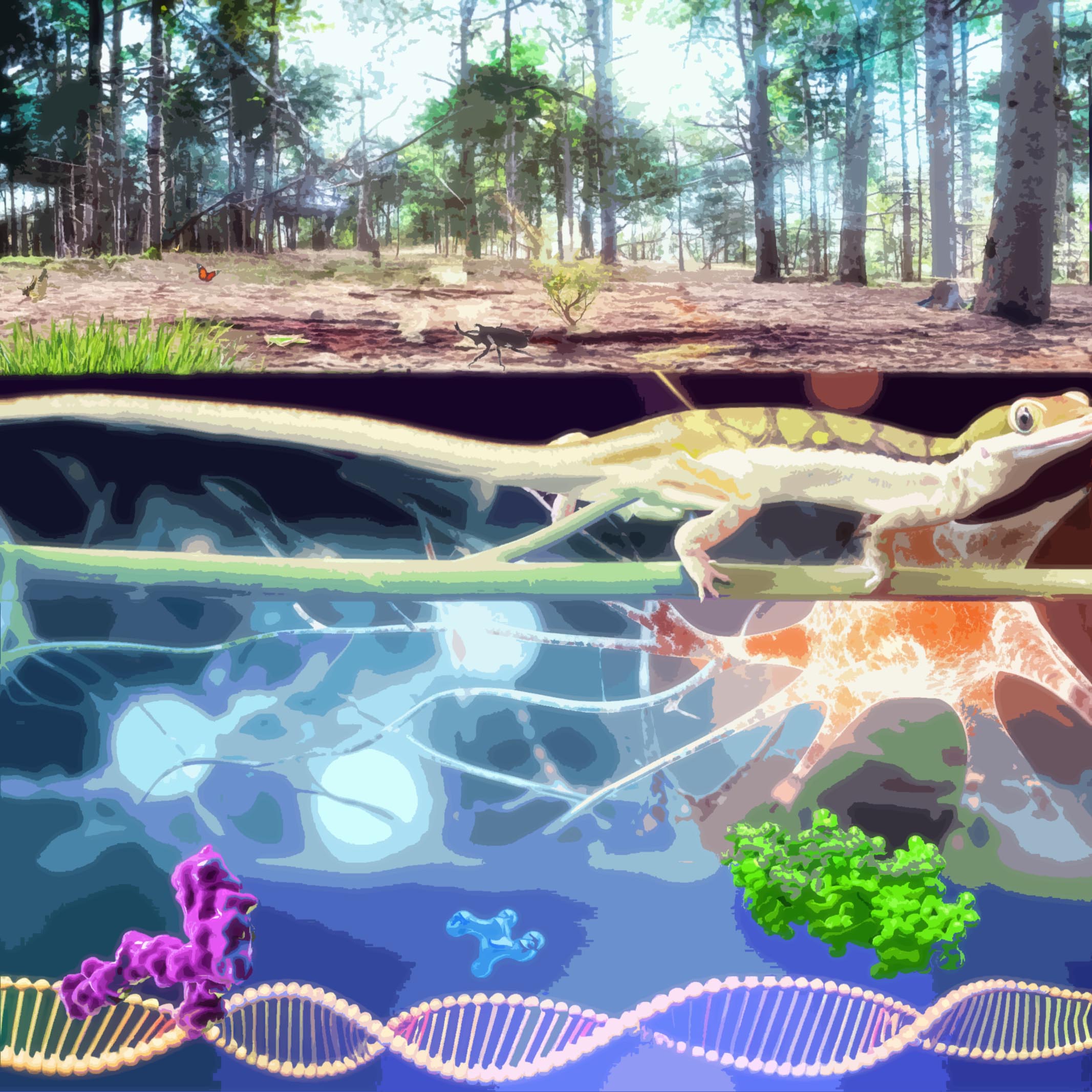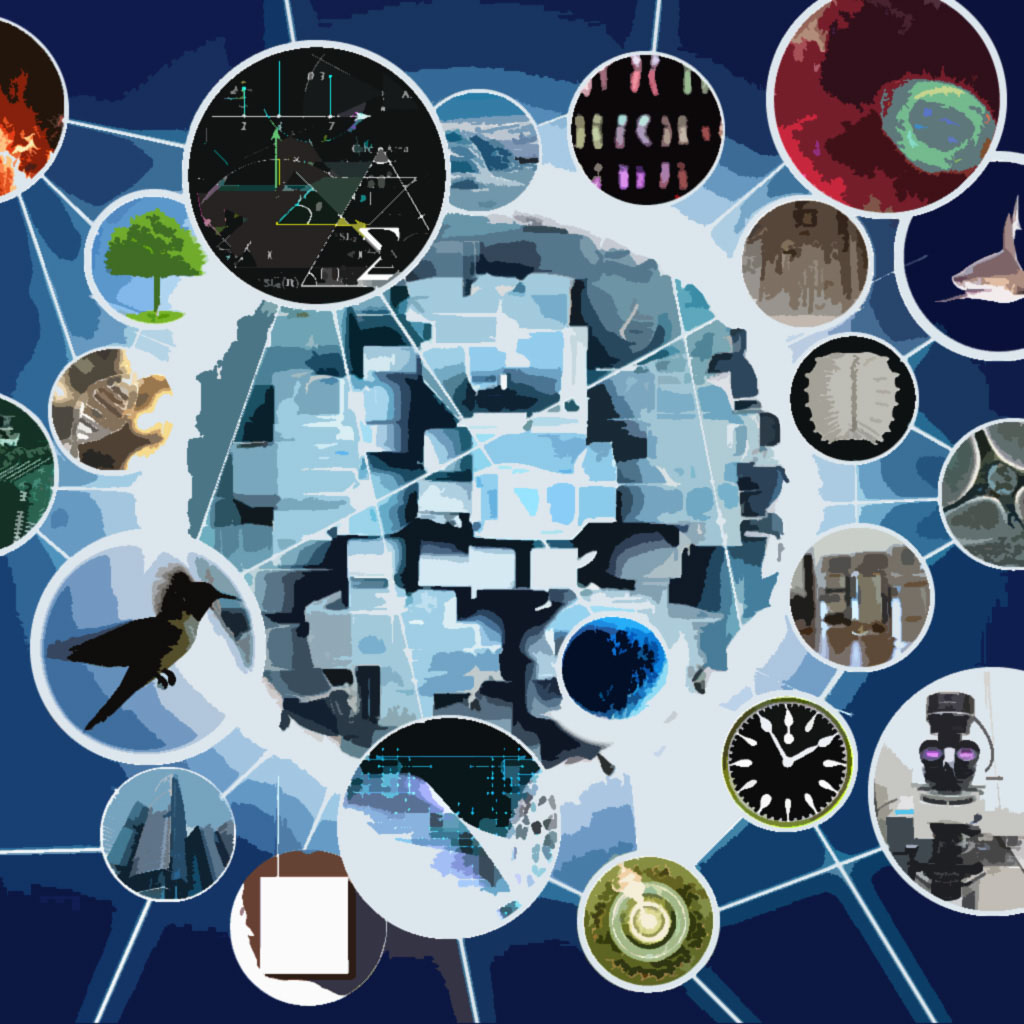At the Research Center for Integrated Evolutionary Science, researchers independently lead their own research laboratories regardless of their academic positions, from assistant professors to professors, to conduct their research.
On the other hand, as introduced below, researchers within the center collaborate closely along project divisions to contribute to the advancement of evolutionary science.
Organization

Board Member
| Director Deputy Director Steering Committee |
Prof. Hideki Innan Prof. Naoki Irie Prof. Hideki Innan (Chair) Prof. Yoko Satta Prof. Naoki Irie Prof. Nobuyuki Kutsukake Prof. Yuuki Watanabe Prof. Takehiko Kobayashi (External) Distinguished Prof. Tetsu Sato (External) Prof. Toru Miura (External) Emeritus Prof. Yoh Iwasa (External) Distinguished Prof. Kentaro Arikawa (Observer) Assoc. Prof. Kaori Iida (Observer) |
|---|
Project Divisions
I. Division of Integrative Human Science

The Division of Integrative Human Science aims to comprehensively understand humans from various aspects. By utilizing cutting-edge methods in evolutionary studies and other fields, we will investigate human nature and develop integrated knowledge about humans. We will also clarify the relationship between humans and nature in the past and present, and explore the ideal form of harmony with nature. Furthermore, we will explore the relationship between humans and society, and provide a roadmap for solutions to social issues. Through these activities, we aim to reconsider the role of humans, who now govern the fate of the earth in their hands, and to construct a new view of humanity.
Division of Integrative Human Science
Hisashi Ohtsuki
Project PI
-
Prof. Nobuyuki Kutsukake (Animal behaviour, Behavioral ecology, Primatology)
-
Lecturer Jun Gojobori (Molecular evolution, Population genetics, Physical anthropology)
-
Prof. Yoko Satta (Genome population genetics, Evolutionary physiology)
-
Assist. Prof. Takumi Tsutaya (Biological anthropology, Bioarchaeology, Primatology)
-
Assoc. Prof. Hitomi Hongo (Environmental archaeology, Zooarchaeology, Palaeoanthropology)
II. Division of Evolutionary Diversity

The Division of Evolutionary Diversity aims to understand the evolutionary mechanisms that have generated diverse organismsm, where comprehensive study of organisms, from the microscopic level (e.g., genomes) to the macroscopic level (e.g., ecosystems), is essential. By understanding the mechanisms and history that have created the diversity of extant organisms, we would protect the global environment that have nurtured a wide variety of organisms including humankind, and then be able to build a prosperous and sustainable society.
Division of Evolutionary Diversity
Tatsuya Ota
Project PI
III. Division of Evolutionary Studies of Complex Systems

Along with the scientific and technological development, economic and social activities of humans have brought global-scale transformations including unprecedented challenges. Fundamental research is urgently needed to solve the arising complex issues. Our Division views organisms, environment, human society, and science and technology to be inseparable from each other, and through the integrative perspective, aims to provide a new set of knowledge that promotes coexistence and cooperation for a sustainable society.
Division of Evolutionary Studies of Complex Systems
Kaori Iida
Project PI
-
Assoc. Prof. Michiyo Kinoshita (Behavioral neuroscience, Visual Ecology)
-
Assoc. Prof. Hideyuki Tanabe (Molecular cytogenetics,Chromosome biology)
-
Assoc. Prof. Yohey Terai (The mechanism of adaptation and speciation)
-
Assoc. Prof. Hitomi Hongo (Environmental archaeology, Zooarchaeology, Palaeoanthropology)
-
Lecturer Jun Gojobori (Molecular evolution, Population genetics, Physical anthropology)
-
Assist. Prof. Takumi Tsutaya (Biological anthropology, Bioarchaeology, Primatology)
-
Assist. Prof. Takayuki Watanabe(Evolutionary developmental neurobiology)
Logo
The logo, which combines
ies (Integrative Evolutionary Science)
with a circle of people extending their hands,
conveys a message of development and support within people,
which leads to research.